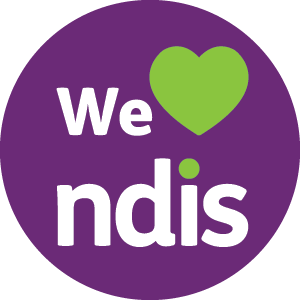At Aus Care Community Services, we understand that every behaviour communicates something. Our NDIS behaviour support services are designed to improve quality of life by helping participants develop safer, more positive ways to express themselves, engage with others, and navigate their environment.
Behaviour Support NDIS Services

Compassionate, Evidence-Based Support for Positive Change
What Is NDIS Behaviour Support?
Behaviour support is a specialised NDIS-funded service customised to individuals who display behaviours that might present safety risks to themselves or others, or that interfere with their ability to engage in daily life. These behaviours may arise from a variety of causes, including communication challenges, cognitive impairment, trauma history, environmental stressors, or unmet sensory needs.
Our behaviour support service aims to:
- Understand the underlying causes of behaviour
- Reduce behaviours of concern using non-restrictive and proactive strategies
- Build new skills that empower individuals to engage safely and meaningfully with their world
- Support families, carers, and staff to respond consistently and positively
- Monitor progress through measurable behavioural outcomes

Our Comprehensive Support Process
Step 1: Behaviour Assessment
We begin with a Functional Behaviour Assessment (FBA), where our qualified practitioner observes the participant, consults with family or staff, and reviews relevant documentation. This assessment helps identify what triggers the behaviour, what purpose the behaviour serves, and what environments may be contributing to it.
Step 2: Behaviour Support Plan Development
Using the findings from the assessment, we create a Positive Behaviour Support Plan (PBSP) personalised to the participant’s needs. This plan includes:
- Preventative strategies
- Intervention techniques
- Coping tools for the participant
- Practical advice for families, carers, and educators
- Clear steps to reduce or phase out restrictive practices (if used)
Step 3: Implementation & Training
We don’t just hand over a document. Our behaviour support team provides training to all key stakeholders, including:
- Family members and informal carers
- Disability support workers
- Teachers, case managers, and residential care teams
This ensures consistency across environments and supports the participant holistically.
Step 4: Monitoring and Review
We regularly review the plan’s effectiveness, update strategies as needed, and adjust the support model based on real-world outcomes and participant feedback.
Let’s Work Together for Positive Change
Challenging behaviours are never a life sentence. With the right support, structure, and guidance, positive behavioural change is not only possible, it’s empowering.
If you’re ready to learn more about how NDIS behaviour support can make a difference in your life or someone you care for, reach out to the team at Aus Care CS today.
Examples of Behaviours of Concern
Behaviours of concern might include:
- Physical aggression toward others or property
- Self-injurious behaviours (e.g. head banging, skin picking)
- Verbal aggression, yelling, or swearing
- Running away or absconding from safe environments
- Refusing essential care or support
- Social withdrawal, disengagement, or distress in group settings
These behaviours are not “bad” or “naughty” — they are often the result of difficulty in expressing needs or responding to overwhelming environments. Our role is to help participants build safer and more effective ways of communicating and coping.
Who Can Benefit from NDIS Behaviour Support?
NDIS behaviour support is suitable for individuals of all ages who need extra help with emotional regulation, communication, and social engagement. Common participant profiles include:
- Children and teenagers with autism spectrum disorder who exhibit frustration or aggression
- Adults with psychosocial disabilities who experience complex behavioural responses to anxiety or trauma
- People with intellectual disabilities who require structured behavioural guidance
- Participants living in SIL or group settings where shared space can be a trigger for behavioural episodes
Our service is appropriate for both short-term support plans and long-term behavioural intervention.
Additional Support Options
In many cases, behaviour support is most effective when delivered alongside other NDIS-funded services. We can work in partnership with:
- Speech therapists to support communication strategies
- Occupational therapists for sensory integration plans
- Psychologists or counsellors for trauma or anxiety-related behaviours
- Support Coordinators to ensure service alignment and consistency
We also provide reports for NDIS plan reviews and assist with funding justification when increased support is required.
Our Approach
We believe behaviour support should never be about control or punishment. Instead, our approach is:
- Respectful: We uphold the dignity and rights of all participants
- Collaborative: We work with everyone in the participant’s life to build consistent support
- Inclusive: Our plans are accessible and culturally appropriate
- Flexible: We adapt as the participant grows, learns, and changes
- Evidence-Based: All recommendations are grounded in established behavioural science
Understanding Restrictive Practices
In some circumstances, restrictive practices may be in place to ensure safety. These can include physical restraints, environmental restrictions, or limited access to items. Under NDIS rules, these practices must:
- Be reported to the NDIS Quality and Safeguards Commission
- Be used only as a last resort
- Be part of a plan that includes strategies to reduce and eliminate their use over time
Our practitioners are trained to guide organisations and families through this reporting process while focusing on eliminating these practices through proactive strategies.
Real-Life Outcomes and Impact
Some of the results our participants have achieved include:
- Reduced frequency and severity of outbursts
- Increased attendance at school or day programs
- Successful transitions from residential settings to community-based living
- Greater independence with daily routines
- Improved relationships with family and peers
- Better understanding of personal triggers and coping strategies
These outcomes are not only measurable but deeply meaningful for participants and their families.

Why Choose Aus Care Community Services?
- Registered NDIS provider with certified behaviour support practitioners
- Culturally competent and trauma-informed team
- Focus on capacity-building and sustainable change
- Strong partnerships with allied health and disability support providers
- Transparent reporting, collaborative planning, and outcome tracking
Our behaviour support services are designed to meet the needs of diverse communities with warmth, integrity, and professionalism.
What Our Community Says
Real stories from people we support, sharing how Aus Care Community Services has made a meaningful difference in their lives, every step of the way.
Ready to Get Started?
Reach out to us today and let's discuss how we can support your NDIS Journey.
Your life, your plan, our goal.
Get In Touch
Please complete the form to submit an enquiry.




